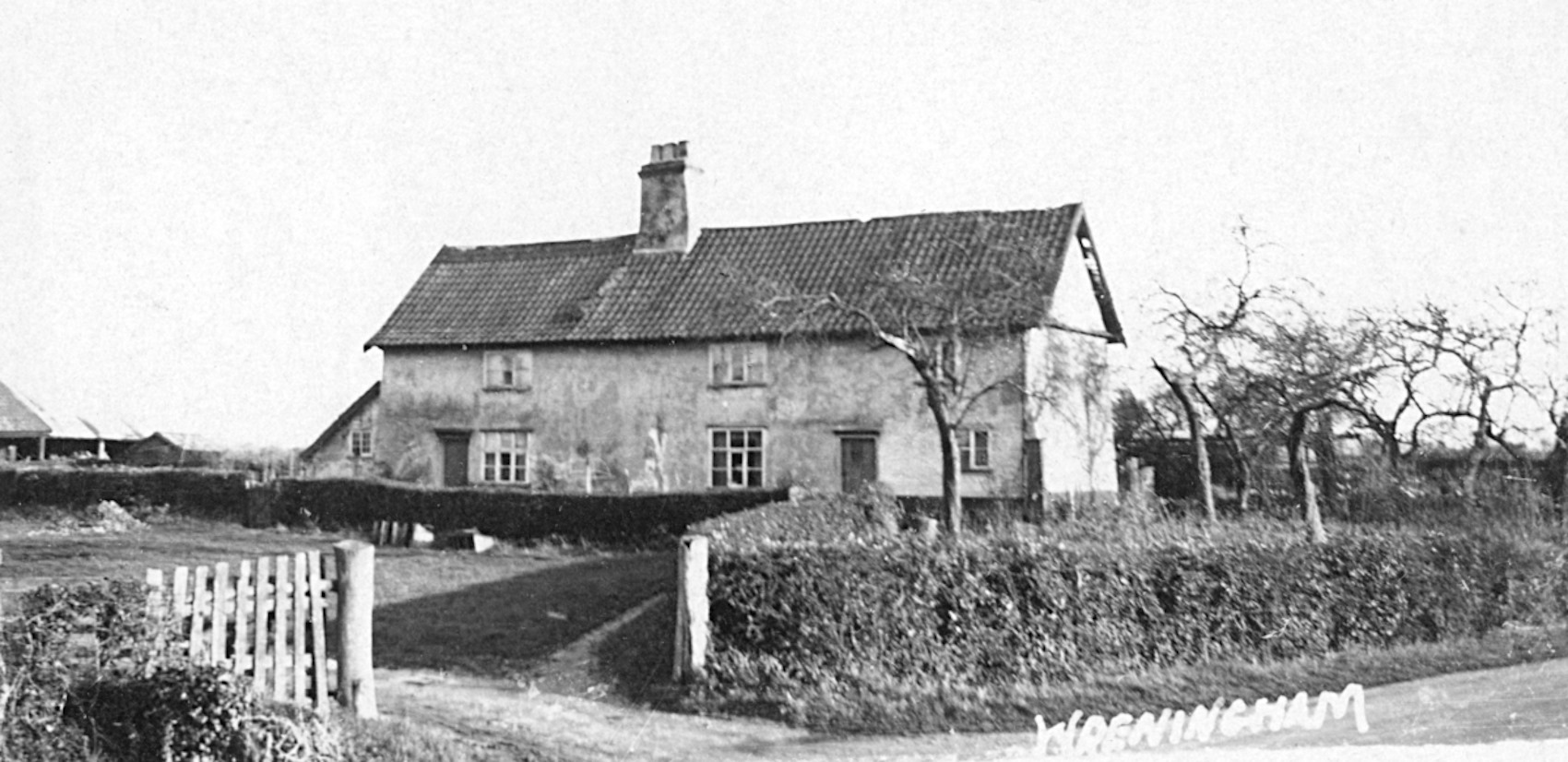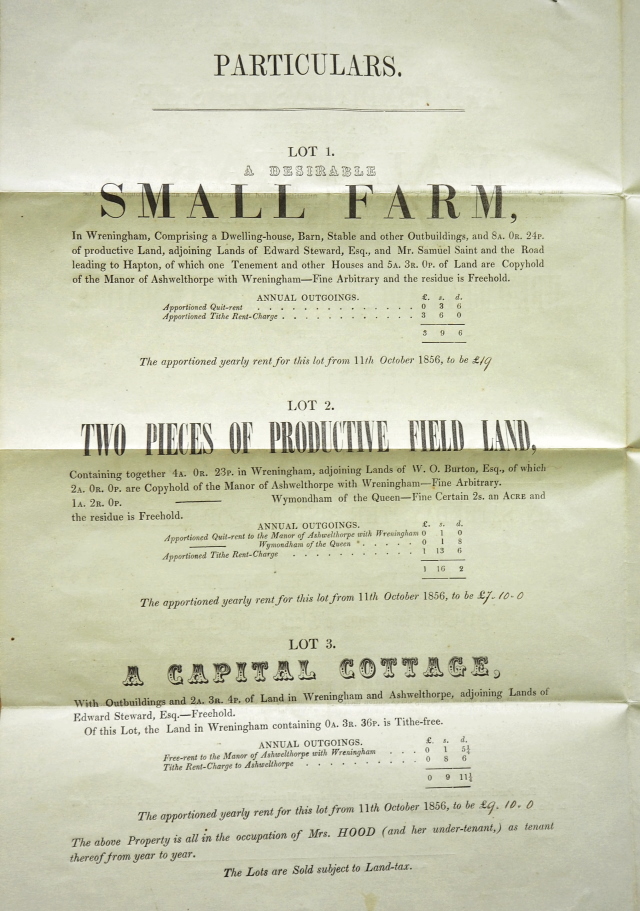
More details about Elmtree Farm (formerly “George’s Farm”) are coming shortly …….
Further examples ….
There have been numerous smaller farms and small-holdings situated in the village. A couple of examples are given below. As time and opportunity permits we will expand the information on this page.
Charles Eldon
Charles Eldon was farming in Toprow farmer until his death in 1856. An auction followed and the farm was divided into 3 Lots.
Lot 1 was approximated 8 acres plus a house and farm buildings.
Lot 2 comprised about 4 acres of land adjoining other land owned by William Ottey Burton.
Lot 3 was a cottage.
Lot 2 was bought by William Ottey Burton for £205. William Ottey Burton then wrote the following text on his May 31st 1856 contract: “I purchased the estate as an agent and on behalf of my sister Maria Burton to whom it is to be conveyed”.
Whilst that might seem a strange statement, William Ottey Burton died (from liver disease) about 12 months later. Perhaps he knew he didn’t have long to live. Was there was some benefit to this arrangement?

“White” Farm
This farm comprised about 6 acres, and on the south side of Church Road between the church and “Butcher’s Corner”. The Farmhouse is now known as “White Cottage”. The tribulations of farming are not limited to the weather and produce prices; in 1903 there was a court case involving this farm’s tenant who had completed his tenancy and was now living at Silfield.
The ex-tenant was J Henry Dennington. His landlord, Robert Rix, from Norwich, had inspected the property and demanded £36 in damages due to “dilapidation” and “improper cultivation”. The case was heard in front of Judge Willis, in Wymondham.
The defendant made a case that the property was left in much the same state as it had been when the tenancy started. Also in court were Robert D Day, James Quantrell and William Bothway all of whom supported the tenant and gave positive examples of how well he had gone about his farming. It was also mentioned that the previous tenant and butcher, Robert Brighton, who lived just across the road, had used the farmhouse as a store. Quantities of lard etc had caused the grease marks on the walls. Robert Day told the court that some of the farmhouse floors had been rotten years before the tenancy had begun.
A jury was determining the case. It appears that the precise terms of the tenancy agreement might have been important and the jury supported the landlord, Mr Rix. The damages payment was limited to £10 17s – still a lot of money, at the time.
